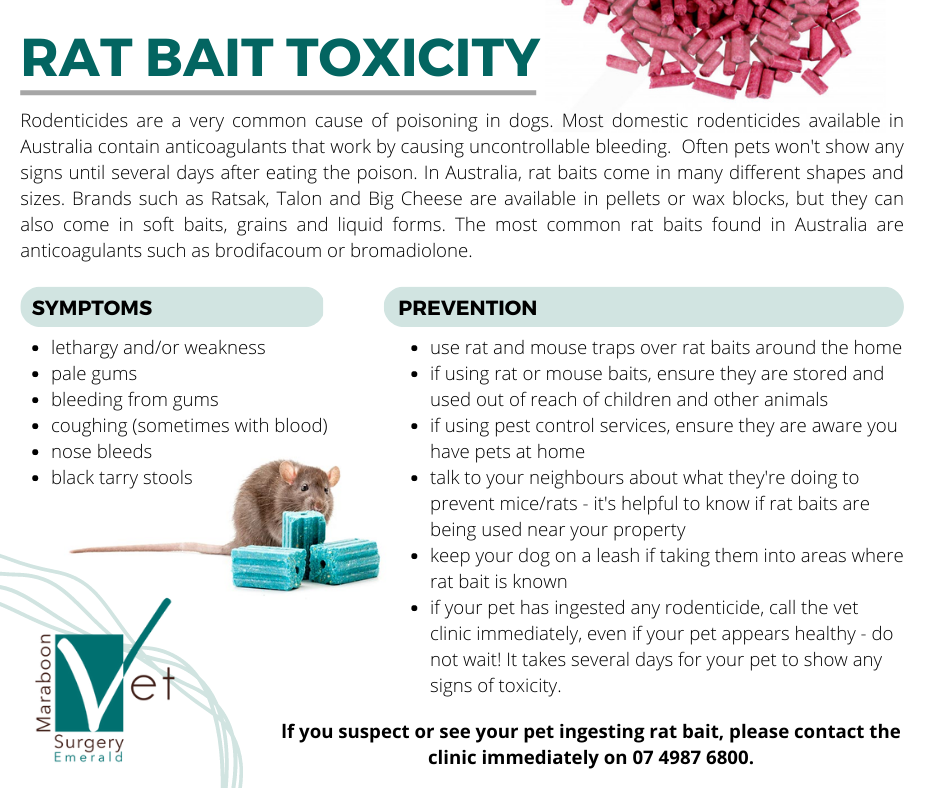We have recently seen an increase in the number of pets who have been exposed to ‘Rat baits’ and requiring life saving treatments. Rodenticides (Rat Bait) are a very common cause of poisoning in dogs. Most domestic rodenticides available in Australia contain anticoagulants that work by causing uncontrollable internal bleeding. Often pets won't show any signs until several days after eating the poison. In Australia, rat baits come in many different shapes and sizes. Brands such as Ratsak, Talon and Big Cheese are available in pellets or wax blocks, but they can also come in soft baits, grains and liquid forms. The most common rat baits found in Australia are anticoagulants such as brodifacoum or bromadiolone.
Symptoms of Rat Bait poisoning:
- lethargy and/or weakness
- pale gums
- bleeding from gums
- coughing (sometimes with blood)
- nose bleeds
- black tarry stools
Some methods to avoid your pet ingesting rat bait can be to use rat and mouse traps over rat baits around the home. In the case that you do use rat or mouse baits, ensure they are stored and used out of reach of children and other animals. When using pest control services, ensure they are aware you have pets at your home. Also talk to your neighbours about what they are doing to prevent mice/rats - it's helpful to know if rat baits are being used near your property. When taking your dog into areas where rat bait is used, or you are unsure if it is or not, always ensure they are on a leash.
If your pet has ingested any rodenticide, or you suspect they may have, call your Vet clinic immediately, even if your pet appears healthy - do not wait! It takes several days for your pet to show any signs of toxicity.
